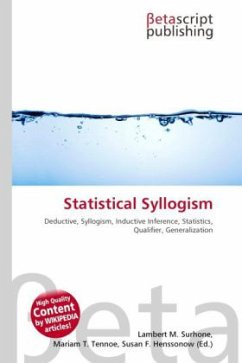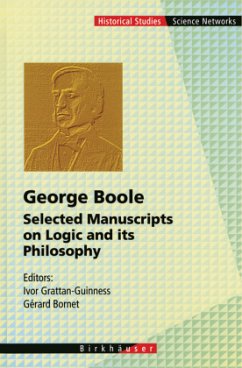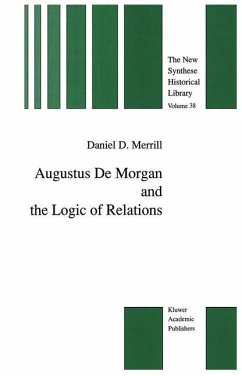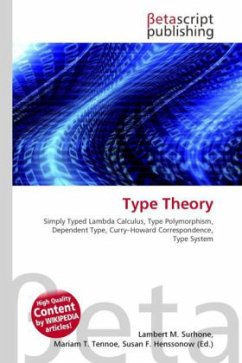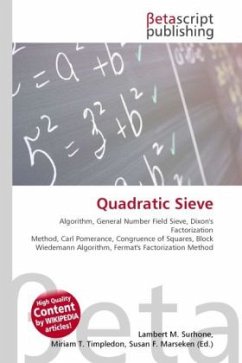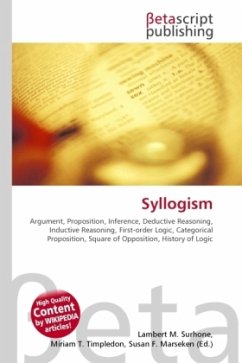
Syllogism
Versandkostenfrei!
Versandfertig in 6-10 Tagen
23,99 €
inkl. MwSt.

PAYBACK Punkte
12 °P sammeln!
High Quality Content by WIKIPEDIA articles! A syllogism (Greek: ??????????? ? "conclusion," "inference") or logical appeal is a kind of logical argument in which one proposition (the conclusion) is inferred from two others (the premises) of a certain form. In Aristotle's Prior Analytics, he defines syllogism as "a discourse in which, certain things having been supposed, something different from the things' supposed results of necessity because these things are so." (24b18?20) Despite this very general definition, he limits himself first to categorical syllogisms (and later to modal syllogisms)...
High Quality Content by WIKIPEDIA articles! A syllogism (Greek: ??????????? ? "conclusion," "inference") or logical appeal is a kind of logical argument in which one proposition (the conclusion) is inferred from two others (the premises) of a certain form. In Aristotle's Prior Analytics, he defines syllogism as "a discourse in which, certain things having been supposed, something different from the things' supposed results of necessity because these things are so." (24b18?20) Despite this very general definition, he limits himself first to categorical syllogisms (and later to modal syllogisms). The syllogism was at the core of traditional deductive reasoning, where facts are determined by combining existing statements, in contrast to inductive reasoning where facts are determined by repeated observations. Syllogism was superseded by first-order predicate logic following the work of Frege, in particular 1879 Begriffsschrift (Concept Script) 1879.



